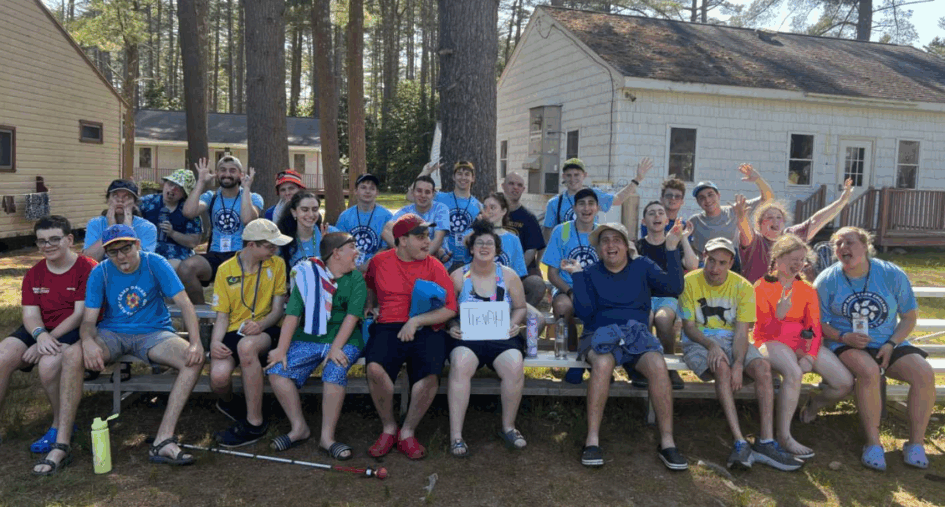Tikvah: Helping Kids & Young Adults Thrive

We’re so proud that the Tikvah Program was started at Camp Ramah New England in 1970 by Herb and Barbara Greenberg and CRNE director Donald Adelman. Tikvah remains a core part of what makes Ramah so special. Our camp wouldn’t be the same without all of the incredible participants in all of our Tikvah programs!! (Amitzim, Ma’avar, Vod-Ed/Tochnit Avoda, and our supported staff-members.)
Our long-time former Tikvah Director, Howard Blas is quoted extensively in this article at jns.org about inclusion at summer camps. Today Tikvah is as vibrant as ever at CRNE, under the leadership of Dr. Bonnie Schwartz and an amazing array of staff-members!
Here are some excerpts from the article:
Howard Blas, who directs the National Ramah Tikvah Network, the disabilities arm of the Conservative movement’s camps, told me he marvels at how profoundly camps have changed since 1970, when Herb and Barbara Greenberg launched Tikvah.
“I’m 60 years old. I say, ‘You grew up in this time where you had kids with disabilities, and they’re included in certain classes in your public high schools. But you know, back in the day, they were the “retarded kids,” downstairs [or] off-site,’” explained Blas, describing the talks he gives to younger generations about the evolution of Jewish camping.
The Greenbergs, who now live in Israel (as does Blas), faced resistance from other camps within the Ramah system, Blas said. “People dismissed the idea, and they said, the normal kids are going to leave, the level of Hebrew is going to go down, Ramah is the big Hebrew-speaking camp, it’s going to ruin the structure of the camp, the finances are going to go kaput.”
None of that happened. But there was a substantive change, Blas said, in how staffers treated campers and how campers treated one another. The culture of inclusion was contagious. “Everybody started being nicer—not just to the kids with disabilities, but to everybody else in camp,” he said.
The success of Tikvah soon caught the attention of other Jewish camp movements, which set up their own programs. Today, the folks who direct inclusion at the camps consult frequently and are on a first-name basis with one another.
…
Vocational training is critical, said Blas, who works to spread the message to other Jewish camp movements. But the next level, he said, is creating opportunities for the neurodivergent to live apart from their families and socialize, a lesson he has brought away from the families he has met.
“Families kind of educated me that, you know, you really can’t get by in this world without having a job. It could be part-time, it could be volunteer, but you can’t get through life without housing and a social network,” he said.